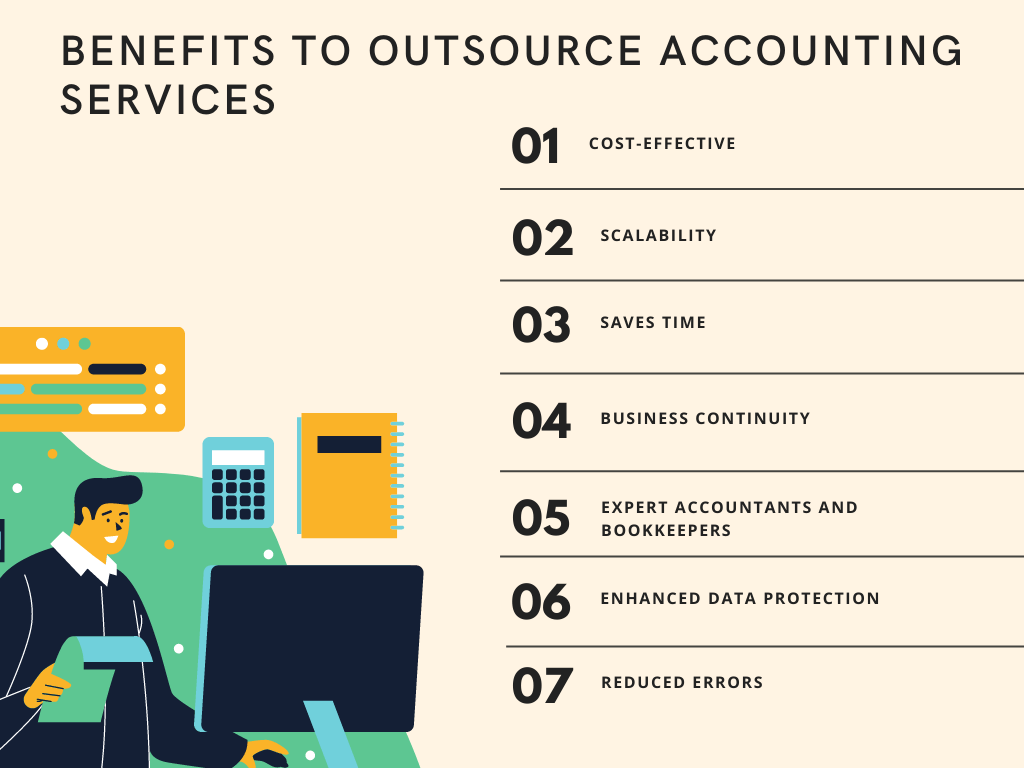This comprehensive guide will equip you with the essential questions to ask before you commit to a CPA for business or personal financial planning. We’ll delve into the ‘why’ behind each question and what specific information you should seek to ensure you find a professional who perfectly aligns with your unique financial needs in the Great Lakes State.
1. What Specific Services Do You Offer That Align with My Needs?
Before you even begin your search, it’s crucial to define what you need from a CPA. Are you primarily looking for a tax accountant Michigan to handle your annual filings and optimize deductions? Do you need comprehensive bookkeeping and payroll services for your growing small business? Or are you a pre-retiree seeking guidance on estate planning, investment strategies, and retirement tax implications?
Why This Question is Important:
CPAs offer a wide range of services, and not all specialize in every area. Understanding their service offerings and how they match your specific requirements ensures you don’t waste time interviewing professionals who aren’t a good fit. For Michigan-based businesses, understanding state-specific payroll taxes, sales tax regulations, and business entity structures are crucial. For pre-retirees, knowledge of Michigan’s inheritance laws and property taxes can be particularly relevant.
What to Look For:
- A clear articulation of their core services (e.g., tax preparation, financial planning, audit support, bookkeeping, payroll).
- Experience with clients similar to you (e.g., millennial small business owners, pre-retirees).
- Willingness to discuss how they can tailor their services to your unique situation, especially regarding Michigan’s business landscape or personal finance considerations.
Real-World Scenario: A millennial small business owner launching an e-commerce store in Grand Rapids needs a CPA who understands online sales tax complexities in Michigan and can help set up efficient accounting software. A pre-retiree in Ann Arbor might need a CPA with expertise in managing retirement accounts and understanding Michigan’s pension exclusions.
2. What Are Your Credentials and Licensing in Michigan?
The “CPA” in Certified Public Accountant isn’t just a title; it signifies a rigorous educational background, successful completion of a demanding exam, and adherence to ongoing professional development. For those looking to hire CPA Michigan, verifying these credentials is non-negotiable.
Why This Question is Important:
Only a licensed CPA can perform certain services, such as preparing audited financial statements or representing clients before the IRS during audits. Furthermore, a CPA’s license ensures they meet ethical standards and stay updated on the latest tax laws and financial regulations, which is vital for both individuals and small business CPA Michigan services.
What to Look For:
- Verification of their CPA license through the Michigan Board of Accountancy.
- Confirmation of their active Preparer Tax Identification Number (PTIN) if they will be preparing your taxes.
- Any additional certifications or specializations (e.g., Certified Financial Planner (CFP) for pre-retirees, or Certified Fraud Examiner (CFE) for specific business needs).
Actionable Insight: You can verify a CPA’s license in Michigan through the LARA (Michigan Department of Licensing and Regulatory Affairs) website, or by using tools like the NASBA CPA Verify site.
3. What is Your Experience with My Industry or Financial Situation?
While general financial expertise is good, specialized experience is even better. This is particularly true for small business CPA Michigan needs or complex pre-retirement planning.
Why This Question is Important:
A CPA with experience in your specific industry will understand its unique financial challenges, tax implications, and growth opportunities. For pre-retirees, a CPA familiar with various retirement vehicles, Social Security strategies, and long-term care planning can provide more tailored and effective advice.
What to Look For:
- Examples of past clients or businesses they’ve served in your industry (e.g., tech startups, healthcare practices, manufacturing, real estate).
- For pre-retirees, experience with similar net worths, income streams, and retirement goals.
- Their understanding of common financial pain points and opportunities within your niche.
Real-World Scenario: A brewery owner in Traverse City will benefit from a CPA who understands the specific excise taxes, inventory management, and distribution complexities of the craft beverage industry in Michigan.
4. How Do You Communicate and What is Your Availability?
Clear and consistent communication is the cornerstone of any successful professional relationship, especially when it comes to your finances. You’ll be sharing sensitive information, so comfort and trust are paramount when you choose a CPA.
Why This Question is Important:
Different CPAs have different communication styles and availability. Understanding this upfront ensures your preferred method of contact (phone, email, video calls) and their responsiveness align with your expectations. This is crucial during tax season or when urgent financial decisions arise.
What to Look For:
- Their preferred communication methods and typical response times.
- Who will be your primary point of contact (the CPA directly, or a team member)?
- How they handle urgent queries or unexpected financial events.
- Their typical business hours and availability during peak seasons.
Actionable Insight: Discuss how often they will proactively communicate with you about financial updates, tax law changes relevant to Michigan, or opportunities for optimization.
5. What is Your Fee Structure and How Do You Bill?
Financial transparency is key. Understanding a CPA’s fee structure before committing ensures there are no surprises down the line and helps you budget effectively, whether you’re a small business CPA Michigan client or an individual seeking tax assistance.
Why This Question is Important:
CPA fees can vary significantly based on services, experience, and location. Some charge hourly, others a flat fee per service or project, and some offer retainer agreements. Getting a clear understanding prevents misunderstandings.
What to Look For:
- A detailed breakdown of their fees for the services you anticipate needing.
- Whether they charge hourly, by project, or on a retainer basis.
- Any additional costs (e.g., for software, specialized reports, or expedited services).
- Their policy on billing for consultations or unexpected queries.
Actionable Insight: Always request a written estimate or engagement letter outlining the agreed-upon services and fees. This provides a clear reference point.
6. How Do You Handle Confidentiality and Data Security?
You’ll be entrusting your CPA with sensitive personal and business financial data. Ensuring their commitment to confidentiality and robust data security is paramount.
Why This Question is Important:
In an age of increasing cyber threats, protecting your financial information is critical. A reputable CPA firm will have stringent protocols in place to safeguard your data, adhering to professional ethical standards and relevant data privacy laws, which can include Michigan-specific regulations.
What to Look For:
- Their policies on data encryption, secure file sharing, and client portals.
- How they handle physical documents and off-site backups.
- Their commitment to compliance with privacy regulations (e.g., HIPAA for certain medical practices, or general data protection principles).
- Whether they have cybersecurity insurance in case of a breach.
7. Can You Provide References or Testimonials?
While a CPA’s own explanation of their services is valuable, hearing from past or current clients can offer invaluable insights into their professionalism, effectiveness, and overall client experience.
Why This Question is Important:
References provide an objective perspective on the CPA’s strengths and weaknesses. They can confirm whether the CPA delivers on their promises, communicates effectively, and provides tangible value to their clients. For Michigan-based professionals, local references can also speak to their understanding of regional nuances.
What to Look For:
- Permission to contact a few of their existing or past clients, preferably those with similar financial profiles or business types.
- Online reviews and testimonials on platforms like Google My Business, Yelp, or professional directories.
- Their professional affiliations and involvement in local Michigan business communities.
Actionable Insight: When contacting references, ask about their experience with the CPA’s responsiveness, problem-solving abilities, and whether they would recommend them.
8. What is Your Approach to Proactive Financial Planning and Tax Optimization?
A great CPA doesn’t just react to your financial situation; they actively help you plan for the future, seeking opportunities for growth and tax savings. This is particularly important for millennial small business owners aiming for scalability and pre-retirees focused on maximizing their retirement nest egg.
Why This Question is Important:
A proactive CPA can identify potential tax advantages, advise on financial strategies that align with your long-term goals, and help you avoid future pitfalls. This goes beyond simply filing taxes; it’s about strategic partnership.
What to Look For:
- Their philosophy on year-round tax planning versus just tax season preparation.
- How they stay updated on changes in tax laws, especially those impacting Michigan businesses or residents.
- Examples of how they’ve helped other clients save money or achieve financial goals through proactive advice.
- Their willingness to offer financial guidance beyond just tax and accounting (e.g., business growth strategies, wealth management advice).
Real-World Scenario: A CPA could advise a Michigan small business owner on leveraging state tax credits for job creation or research and development, or guide a pre-retiree on strategies for optimizing their Michigan income tax deductions in retirement.
Summary: Your Path to a Trusted Financial Partner in Michigan
Choosing the right CPA in Michigan is a pivotal decision for both your personal financial well-being and the success of your business. By asking these eight crucial questions, you empower yourself to conduct thorough due diligence, ensuring you select a professional who is not only qualified but also genuinely aligned with your goals and values. A great CPA acts as more than just an accountant; they become a trusted financial advisor, helping you navigate the complexities of taxes, optimize your financial health, and achieve long-term prosperity in the dynamic Michigan economic landscape.
Take your time, ask the tough questions, and trust your instincts. The right CPA can be an invaluable asset on your financial journey.
Disclaimer:
The information provided in this blog/newsletter is for general informational purposes only and does not constitute tax, legal, or accounting advice. Every taxpayer’s situation is unique, and tax laws are subject to change. You should consult with a qualified tax professional before making any financial decisions based on this content.
If you’d like personalized guidance or have questions about how these topics apply to your specific circumstances, I’d be happy to help. Please feel free to contact me to schedule a consultation.
-Mark Persitz, CPA







